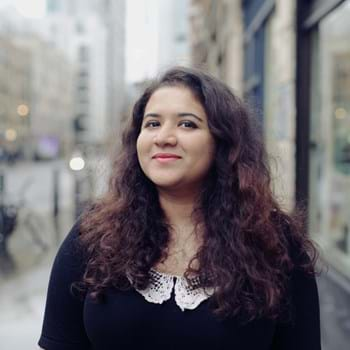Speakers
Hera Hussain
Hera is the Founder and CEO of CHAYN - a global nonprofit that creates resources on the web to address gender-based violence. Chayn’s multilingual resources, designed with, not for survivors, have reached more than 500 000 people. Raised in Pakistan and living in the UK, Hera knew from early on she wanted to tackle violence against women. She believes in using the power of open source technology, trauma-informed design and hope-filled framing to solve the world's pressing issues. Hera is an Ashoka Fellow, and was on the Forbes 30 Under 30, MIT Technology Review’s Innovators Under 35 and European Young Leader 2020 list.

The transformative power of participatory and trauma-informed design
Design can be transformative for people, spaces and systems. As design practice becomes a formalised discipline, much thought has been given to making it just, equitable, inclusive and user-centred. Phrases such as collaborative, lived experience, trauma-informed and safety first design are now common in discourse. Moving beyond the buzzwords, this talk will look at how can we take a pragmatic, adaptive and principles-based approach to designing products and services especially for those who have a history of trauma. When someone is experiencing pain and has been failed by those around them, a loss of trust and hope is real. How do we create warm, hopeful products and services for affirmation, utility, solidarity and healing? This talk will share examples of the transformative impact of participatory and trauma-informed design - be it through images, words, or interactions. The talk will share where such an approach succeeds, where it fails and what to do when we’re just not sure.
Based on 12 years of community organising, product and service design for a global audience of survivors of gender-based violence, Hera’s work at Chayn led to the creation of 8 principles: Safety, Agency, Equity, Privacy, Accountability, Plurality, Power sharing and Hope. But rather than viewing these principles as another inclusion checklist that binds teams and decision makers to a rigid, unforgiving evaluation tool - they should be viewed as a prompt and exploration of what aspects are most important for the questions at hand.

